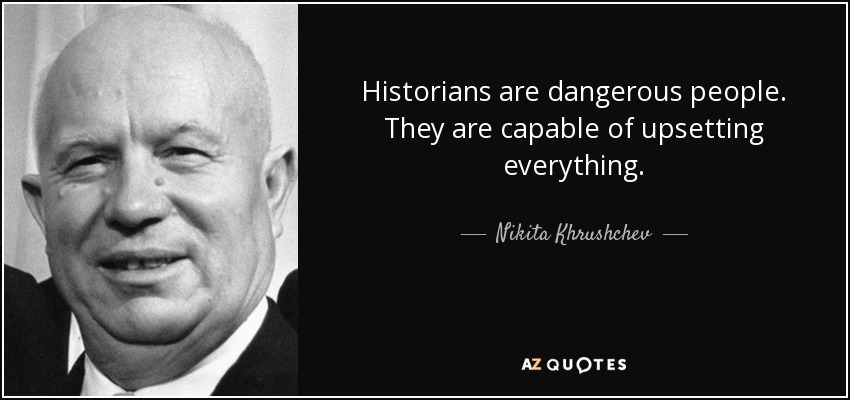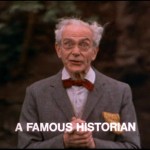 |
| What? What did I say? Do I have a booger or something? |
 |
| The "The" is non-ironic |
I just flew home from the thrilling and wonderful Jesus & Memory conference at St. Mary’s in Twickenham, England, where perhaps fifty of us gathered over two or three days. With the campus a ten minute walk from our hotel, stimulating discussions between old friends, and the shared interests that make new friendships easy, I could have happily lingered forever. There is obviously a growing sense of respect among Jesus scholars for the progress that’s been made by “the memory approach”. All thirteen presenters were excellent but I won't try to summarize their talks in this space. Discussion and video should be forthcoming elsewhere.
From those speakers, we heard about social memory, collective memory, cognitive memory, audience memory, reception theory, narrative theory, historical theory, oral tradition, liturgical tradition, the Gospels, Judaica, archaeology, and much much more. It was all wonderful, helpful, and timely, but aside from the standard (read: excellent) analysis of documents & artifacts, the only methodological discussions (that I heard) were focused on hermeneutics. Yes, improving our historical critical expertise is a vital part of informing historical work, but (as Jens Schroeter noted) critical analysis cannot be the sum total of doing historical work. Yes, Social Memory Theory has done a brilliant job of helping us get beyond debates over “reliability” (or "historicity" in the eyes of the old textual positivism), but when does the new paradigm start to shift us beyond the traditional (*cough*dogmatic*cough*) resistance to embracing hypotheticals when necessary?
 |
| We need no history, comrades. Trust me. All is well. |
In Anthony LeDonne’s closing remarks, he noted having observed some frustration among some attendees, and it was shortly before that, during a break, when we heard one senior scholar exclaim (something to this effect): "It's like every time we get close to the main issue we put on the brakes; when are we going to start making historical claims?” Indeed, I don’t think Historiography (the methodology/ies of producing historical reconstructions) was ever engaged from the podium. [Clarification: Schroeter made helpful points about what historiography is not, but I don't recall him helping us to understand what historiography is, or how it works.] In a similar vein, during the panel Q&A time at the end, James Crossley asked (heroically, and I believe non-ironically) what it would look like if “the Memory Approach” brought us “a Big Life of Jesus Book”. His respondents at that point were two of my favorite Jesus scholars, but if either of them directly answered his question, I missed it. Thus, for me, that question now lingers.
When does all of this “Jesus Memory” get us closer to a new “Jesus History”?
 |
| I guess there's always Christian Hollywood |
This weekend’s conference represents the cutting edge of Jesus scholarship worldwide, and after eight years of getting to know New Testament scholars, I have a profound respect for all that they do, not to mention increasing buckets of sympathy. On top of all their traditional labors in Greek philology and exegesis, plus cataloging endless theologies and ideologies, the past half century asked them to master a deluge of literary theories, and to this we have now added Sociology and Cognitive Psychology. The funny thing is, it's all been actually necessary. The twentieth century was full of Jesus scholars inappropriately parading themselves as historians. Those past embarrassments are precisely what keeps motivating these deep dives into interdisciplinary methods for improving historical hermeneutics.
 |
| Confidently droning on about the Arthurian knights of the coconuts |
The good news is that all the hard work is beginning to pay off. Through the tireless efforts of all these cutting edge memory theorists - LeDonne, Schroeter, Rafael Rodriguez, and Chris Keith in particular - it has become increasingly clear that interpreting artifacts is not the same thing as explaining them. The bad news is that we must now demand one more field of mastery from our dear Jesus scholars. I am sorry to say this. But I must say this. They have not yet done enough. No, sadly, it's not yet enough that they are helping their colleagues to recognize a distinction between hermeneutics and historiography. We need them to also become skillful practitioners of historical reconstruction. This problem is something every school kid has learned. Learning to read is much easier than learning to write. I mean, to write well. Or, more gooder. No. I mean good-ly. To write more gooderly.
Back when positivism taught everyone that a text *IS* the past, things seemed easy enough. Reading *WAS* writing because exegetes only needed to explain their own readings. Now that we know better, Jesus scholars will eventually need to start doing more than just working with texts. One way forward is to grapple extensively with Jordan Ryan's recent JSHJ article on Collingwood. My one other recommendation (today) is that if Jesus scholars want to write histories, it might help if they became students of actual historians and avid readers of histories. I sincerely believe what Arnaldo Momigliano has said: "To see how the historian transforms sources into the life of the past, it is easier to learn from Herodotus, Guicciardini, Burckhardt, and Marc Bloch than from any manual of historical method."
 |
| Just add these to your current pile. |
But perhaps, my dear friends in New Testament scholarship, perhaps this may be legitimately one field of mastery too many to ask of you. In saying this, I am not at all being sarcastic. I sincerely don't know how much more anyone could take on in addition to all that you're doing. Let me be clear. I know that many of you have already published work that reconstructs one or more aspects of the past. You've done character studies, you've traced compositional backgrounds, you've asked questions the Gospels don't answer and you've tried to infer reasonable answers to some of those questions. But pretty much all of that has been piecemeal. What you’ve not done (that I’ve yet seen) is to write "the big Jesus book": which means (imho) a comprehensive historical account about the significant events of Jesus’ life and lifetime. To write about several years worth of events requires something very different than an eye for detail in examining evidence. If you wish to construct a narrative representation that depicts a series of ongoing changes which took place gradually over time, you need to develop an ability to envision those changes taking place in your own imagined version of a real world that is full of invisible dynamics. If you don't know what I mean, take Momigliano's advice. Read more histories. And if you want to also know why this type of thing sounds so foreign to so many people - and possibly somewhat foreign to you? - check out the resources page at Sam Wineburg's amazing website, Why Historical Thinking Matters. As it turns out, there are also educationally systemic factors (at least in the U.S.) that may help explain why we are not currently enjoying a hefty plethora of New Testament Historians.
 |
| Wait. It's not about defining facts and defending narratives? Oh, great! Now we need a revolution in Pedagogy too... |
It's all just too much. Or, at least, it's going to take a while yet. Historians who know how to write history aren't up to speed with the expert Jesus scholars whom I met with in Twickenham this past weekend. And those scholars - esteemed friends and those whom I greatly admire - have spent their lifetime so far mastering how to analyze evidence, and they won't all become master historians in a weekend. That's just how life works. Really, sincerely, I'm finally ready to stop being Miss Mary about all of this. This is my honest assessment of everything I think I can see, and hopefully I'm now seeing accurately from both sides of the issue.
On the other hand, maybe we just need more active collaborations. Maybe professional Jesus scholars should recruit some well-trained professional historians. Or, at least for starters, perhaps some friendly amateurs? For whatever it's worth, you guys, I'm available. I'm also extremely affordable.
 |
| What do y'all say? Maybe we could do something like this. |
One way or another, I honestly have lots of hope for whatever comes next. I don't think I have to convince anybody how much I appreciate all that I learned in England this past weekend from my scholarly heroes. It cost me a lot of money to be there and it was worth every penny. In those circles, I may always feel like the young kid asking questions. I'm quite sure that I'll never know more than these amazing professionals about how to critically analyze the New Testament and its related historical evidence. While the one thing I am really good at in this area is doing chronology - and I'll keep working on all of my in-progress-projects, which you can find on my site - that's also just one piece of this puzzle's solution. So yeah, I'll keep doing whatever I can. As should you all. None of us can do everything.
In conclusion, I will keep hoping to see gradual progress by the memory gurus toward producing a new "big Life of Jesus book". I'm rooting for them. I believe they can do this. I believe somebody must.
But suppose they don't ever do it. Suppose nobody ever does. And now suppose that I try.
If that happens, my own "big Life of Jesus book" won’t be exactly like anything that professional scholars would ever produce. Nor could it be. Nor should it be. If it comes to that, my first hope is that none of my academic superiors will respond like a Miss Mary and say, "Why didn't this amateur historian do a better job being critical with his sources?"
Shoot, y'all. I'll write a pop-up book, if that's all I can do.
Let us all keep on striving to do all that we can in this field.
Anon...
